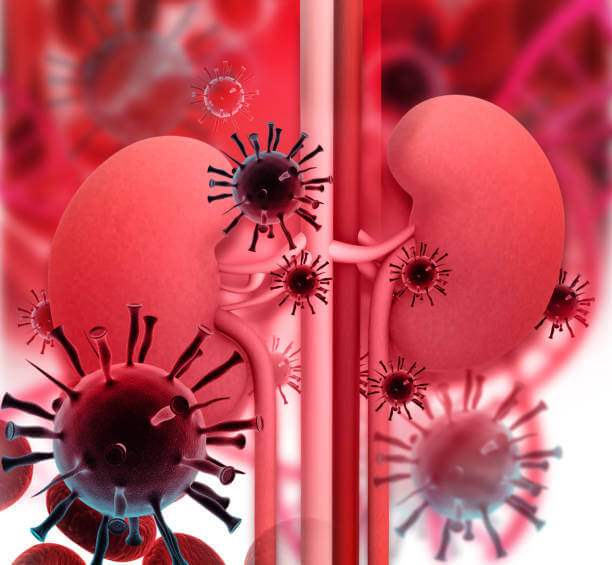Kidney pain is a common ailment that can result from various things, including infection, kidney stones, and even cancer. The pain can range from mild to severe and may occur alongside other symptoms, such as fever, nausea, and vomiting.
If you are experiencing kidney pain, it is crucial to seek medical attention right away to get the proper diagnosis and treatment.
What is Kidney Pain?
Kidney pain refers to discomfort in the kidney region. People usually describe it as a dull, aching feeling on their sides, backs, or bellies. However, the pain in these areas does not always indicate a kidney problem.
Back pain can easily be mistaken for kidney pain. However, kidney pain differs from back pain in how it feels and where it happens.
Pain in the kidneys can have a variety of causes, some of which are serious. If you suspect that either or both of these organs are causing you pain, inform your doctor.
What are the Symptoms of Kidney Pain?
The following are noticeable signs of kidney pain:
- An achy feeling that usually lasts for a long time
- A groin or belly ache that can spread
- Sometimes both sides hurt, but usually just one
- In your stomach or under your rib cage, you feel pain
- Pain that comes in waves or is sharp or severe
Depending on the cause, your kidney pain will have different symptoms. These include:
- Vomiting
- Fever
- Bloody urine
- Cloudy urine
- Pain when you urinate
What are the Causes of Kidney Pain?
Kidney problems could result in pain since the kidneys filter blood, form urine, and expel it through tubes called ureters.
There are several causes of kidney pain, including:
- Kidney infection (pyelonephritis): When bacteria from the bladder infect the kidneys, it is called a kidney infection. A kidney infection is more common among people with diabetes or a blocked urinary tract. Chronic cases often result in repeated infections, and chronic kidney damage as urine flows backward from the bladder to the kidneys due to a problem in the urinary tract.
- Kidney stones: A stabbing pain that is intense and sudden, could be a kidney stone. A ureter is a tube that connects your kidney and bladder. Over time, deposits can accumulate, causing them to block. Your back or side will hurt if that happens. The pain may spread to your groin as well. Peeing out the stone may cause you to experience waves of pain.
- Urinary tract infection (UTI): occurs when bacteria remain behind in the urinary tract after urination. Fever and cloudy urines are possible symptoms and a general feeling of exhaustion.
- Kidney swelling: If your kidneys are blocked, this condition is known as hydronephrosis. Insufficient drainage causes your urine to build up in your kidneys. Usually, this happens in one kidney, but sometimes in both.
- An injury or trauma: An injury or trauma to the kidney area (such as an accident or a contact sport) can cause a laceration or other physical damage. These incidents can also disrupt normal kidney blood flow. From kidney trauma, one may experience acute kidney failure (sudden).
- Kidney cysts: Small kidney cysts may not be noticeable until they grow larger. When the mass gets big, you may feel a dull pain in your side or back or feel it in your upper belly region.
- Kidney cancer: You may not feel any discomfort from kidney tumors in the early stages. As the cancer worsens, you may experience persistent pain in your side, back, or abdomen that does not go away.
How Do You Treat Kidney Pain?
The treatment for kidney pain depends on the underlying cause. Your physician can use the following tools to pinpoint the cause of your symptoms:
Imaging tests
With an ultrasound or CT (computed tomography) scan, you can identify urological stones and assess blood flow.
Urinalysis
The exam determines if there is blood, an excess of white blood cells (which may indicate an infection), proteins, and certain chemicals that may indicate kidney disease.
When Should I See a Doctor?
If you have persistent pain in the kidney area or if you have back pain and any of the following symptoms, you should consult a physician as soon as possible:
- Fever
- A bloody urine
- Feelings of lethargy or illness that won’t fade
- Urine that contains solid material (kidney stones)
- Intense pain while urinating
- Urges for urination repeatedly
- Urine with discoloration
Call Angleton ER at 832-581-2277 or visit our 24/7 emergency room for more information on kidney pain.


